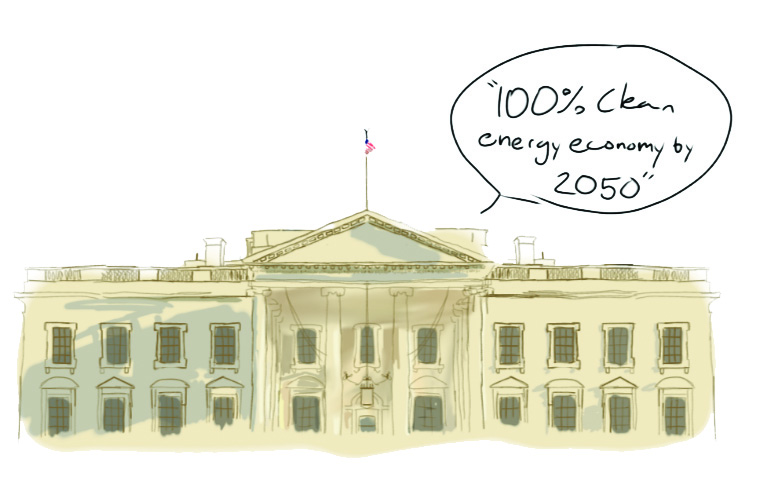The upcoming election is a point of much contention among Americans, much like any, especially elections like that of 2000 when it took a Supreme Court ruling to ultimately determine who won the White House.
“There are a number of elections where the person who won the popular vote didn’t win the presidency,” U.S. History teacher David Brophy said. “That’s because of the electoral college, which is the process that the founding fathers thought would be a better way to pick a president. But when you have a bunch of rich white guys making the decisions, they want to make sure a rich white guy is the president.”
The electoral college is a group of 538 delegates, or electors, who vote for president in place of the public.
Through this process, 529 of those delegates represent the majority winner in their state. Simply stated, this means that whichever presidential candidate gets the most popular votes in a state receives all of the electoral votes in that state.
The only states that do not abide by the winner-take-all process are Maine and Nebraska, whose four and five respective delegates distribute their electors proportionally by district, and the two extra electoral votes go to the state-wide winner.
According to the National Archives and Record Administration, electors are selected by one of the two major political parties, generally at their state convention or by a central council. These electors then pledge to vote for their party’s candidate. When the state populace votes during the November elections, they’re not voting for the candidate directly, they’ve voting for which elector group gets to cast that state’s votes.
The electoral college was founded so that loyalties to state governments and candidates did not influence the vote more than the interests of the national government, according to the Electoral Assistance Commission, which was founded in the wake of the 2000 election to address inequities and flaws in the electoral process.
Additionally, smaller states feared that they would be overpowered and drowned out in the electoral process by more populated states.
Despite the electoral college being founded specifically to ensure votes are equal, the way the elector distribution is laid out means that, in an Orwellian twist, some votes are “more equal” than others.
For example, Florida’s 19.89 million residents are delegated 29 electors, whereas Wyoming’s 584,000 get the bare minimum of three. This means that there are 686,000 people per elector in Florida compared to 195,000 people per elector in Wyoming. This means a single person’s vote in Wyoming is more than three times as influential as a single person’s vote in Florida.
Despite the historical foundation of the electoral college, there is still much protest over its implementation and continued use.
Forbes columnist Taylor Brodarick notes the “inherent, though unlikely, danger of 538 electors overriding the will of millions of voters. The electors are pressured, but not required, to vote for their selected candidate. The real problem is the Electoral College can act properly and still not elect the candidate chosen by the national electorate.”
Brophy is among those who oppose the electoral college’s modern use.
“Those elections [where the popular candidate lost the election] don’t represent, to me, who’s picked by the country. They’re picked by a process that I think is antiquated and I don’t think it provides for an accurate choice by the people voting. You win 100 percent of the electoral votes in a state, and it only takes 50 percent plus one voter to be in the majority [required to win a state],” he said.
Candidates who lost the popular vote have won the presidency on four occasions: 1824, 1876, 1888 and 2000.
In 1824, none out of four major candidates received the required votes to win, so the election went to the House of Representatives, who voted John Quincy Adams into the White House. In 1876, a backdoor deal put a Republican in the White House in exchange for ending Reconstruction, paving the way for segregation to continue. In 1888, Grover Cleveland won the popular vote despite having powerful enemies in several lobbies, but lost the electoral college.
In the 2000 election, Democrat Al Gore and Republican George W. Bush were neck and neck at the polls, with Gore leading Bush 267 electoral votes to 246, with the battleground state of Florida the only state left up for grabs. The victory margin – which placed Bush in the lead by just 1,784 votes – was so small that an automatic recount was triggered. The machine recount reduced Bush’s lead to just 327, and Gore requested a manual recount, which was denied by the Supreme Court.
Later studies proved that by national standards Bush won, though CNN states that a later study supported the theory that “more voters went to the polls in Florida on Election Day intending to vote for Gore than for Bush” but there were complications with the way the ballots were counted.
While an unpopular candidate winning the Presidency can seem like a surprising result, perhaps the most drastic result ever from an election was from the election of 1860, in which Abraham Lincoln comfortably won the presidency. He did so with 480,000 more votes than the next most popular candidate and over twice as many electoral votes than the next most voted-for candidate.
Lincoln’s ascendancy to the White House, however, was the initial catalyst for the Civil War. Two weeks after the confirmation of Lincoln’s victory, South Carolina voted to secede from the Union. The Civil War would begin three months later, resulting in the bloodiest war in American history, killing more Americans than World War I and World War II combined.
Nonetheless, many decry the fact that an unpopular candidate can still become President as a sign that the electoral college is outdated. A study by Mozilla’s Jesse Ruderman found that with just 21.8 percent of the popular vote (just over 50 percent in the 39 smallest states and D.C.) a candidate could theoretically become president. Conversely, by winning 11 out of the 50 states (California, Texas, Florida, New York, Illinois, Pennsylvania, Ohio, Georgia, Michigan, North Carolina and New Jersey) a candidate could also win all 270 votes needed to win the presidency.
The Washington Democratic caucus held on March 26 yielded Bernie Sanders as the winner for Washington state with 72 percent of the Democratic vote, according to AP.
Whether this huge lead will hold remains to be seen, as Democratic presidential candidate Hillary Clinton leads Bernie Sanders nationwide by about 8 percent in polls, according to the HuffPost Pollster.








